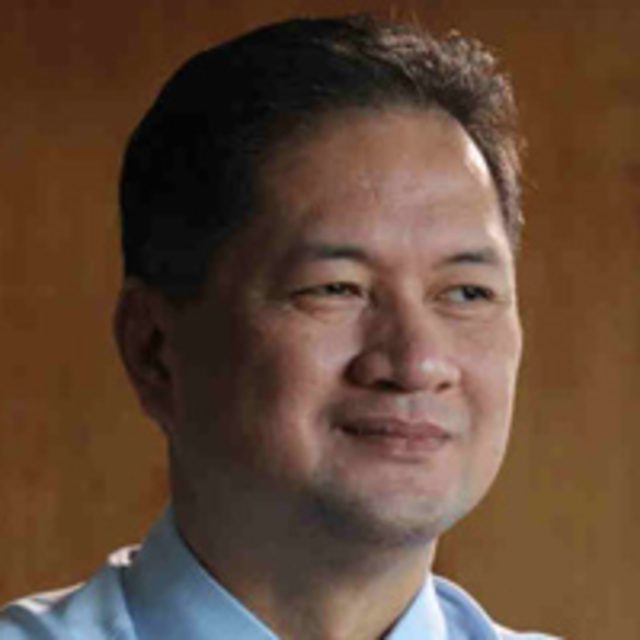SUMMARY
This is AI generated summarization, which may have errors. For context, always refer to the full article.
![[OPINION] An intergovernmental tug of war during the coronavirus outbreak](https://www.rappler.com/tachyon/r3-assets/612F469A6EA84F6BAE882D2B94A4B421/img/227DD3D5131C492AB56BA12D36FAFAE7/intergovernmental-tug-of-war-during-covid-19-april-28-2020.jpg)


All eyes are on local governments.
Last April 17, 2020, one month since a public health emergency was declared, the Inter-Agency Task Force adopted the policy of a “national government-enabled, local government unit-led, and people-centered response” to COVID-19. Led by local chief executives – governors, mayors, and barangay captains – local government units (LGUs) have since been placed in a tug of war as to their role in this crisis.
In his March 16 televised address placing Luzon under enhanced community quarantine, President Duterte said that mayors could “go ahead” and “come up with any measure to protect public health,” suddenly putting LGUs in the spotlight. With the President’s “blessing,” LGUs, in a split second, became responsible for handling the deadly pandemic.
Who must transport healthcare workers and frontliners? Local governments.
Who must feed thousands of families – jobless, stranded, and restless in their homes, if they even have homes? Local governments.
Who must enforce social distancing protocols and checkpoints? Local governments.
A few days after, and as local chief executives were still warming up to the burden imposed on them, the mandate was cut short. Duterte reversed himself, saying that the national government now calls the shots in this crisis, not the LGUs, and threatening officials with legal action if they act otherwise. (READ: LGUs can no longer declare lockdowns on their own)
Let us revisit the rulebook (of laws) in this intergovernmental tug of war. Article X, Section 4 of the 1987 Constitution states, “The President of the Philippines shall exercise general supervision over local governments. […]”
The President’s power of supervision – as distinguished from the power of control – over LGUs means that while the President has the power to ensure that LGUs faithfully implement the laws and to discipline officials through DILG, the President has no authority to substitute his own discretion and prerogative for that of the local officials’. The President cannot monopolize decision-making.
New rules of the game
The tug of war continued in the succeeding weeks.
The enactment of RA No. 11469 or the Bayanihan to Heal as One Act, which granted emergency powers to the President, we believe ignited LGUs’ hope that the national government would finally take the reins on crisis response. While the law provided an array of aid to Filipinos that are undeniably commendable, from the perspective of LGUs it was not at all encouraging.
Article X, Section 2 of the 1987 Constitution states, “The territorial and political subdivisions shall enjoy local autonomy.” Referring to LGUs, the Constitution guarantees the primacy of local autonomy or the power of LGUs to decide on matters directly affecting their citizens – even in a public health emergency. The Bayanihan law undermines local autonomy by requiring LGUs to be strictly consistent with the rules issued by the national government; otherwise, a criminal punishment may be imposed on LGU officials. It unduly limits the LGUs’ canvasses on what strategies may be implemented in their areas.
Time for LGUs to pull
With these constraints spreading LGUs’ resources and authority so thinly, let us see how they responded to this challenge.
We commend these LGUs: Pasig City (Vico Sotto) identified a P1 billion supplemental local budget to provide cash aid to all households not covered by the DSWD-led cash assistance; Marikina City (Marcy Teodoro) took a firm stand with the DOH to accredit the city’s testing center, leading Health Secretary Duque to consider it from “non-compliant” to “one of the best” in a matter of days; and Valenzuela City (Rex Gatchalian) decided to conduct mass testing for COVID-19 not only of PUIs, but also of PUMs who are asymptomatic. (READ: Pasig starts distributing subsidy, passes ordinance vs discrimination of virus cases)
Makati’s Abby Binay and San Juan’s Francis Zamora have also been praised for the comprehensiveness of their cities’ response to the pandemic. Quezon City’s mayor, Joy Belmonte, is also noteworthy for her humility to publicly apologize for her actions in late March, the city having major hospitals catering to COVID-19 patients. In fairness, Mayor Belmonte and her Manila counterpart Isko Moreno have been quite aggressive in implementing the quarantine and delivering relief to their constituents. The challenge for Belmonte and Moreno is the sheer size of their cities in terms of area and population. Mayor Belmonte has the added burden of both sexist and anti-dynasty sentiments.
Beyond Luzon, Iloilo City (Jerry Treñas) is known for its aggressive contact tracing, innovative quarantine enforcement (making violators watch informative videos on COVID-19), and being the country’s leader in enacting an anti-discrimination ordinance related to COVID-19 as early as March 27, 2020. LGUs from all over the country had enacted their own versions of the said measure.
However, not all LGUs have done consistently well; some have been criticized for either dereliction of duty or abuse of authority. San Juan, Batangas refused a balikbayan OFW to continue self-quarantine at her residence despite DOH clearance; Cebu warned that citizens who express criticism against the LGU will be traced and dealt with; and Bukidnon had isolated itself by banning people and goods from crossing its borders. (READ: Cebu film writer arrested over Facebook post about coronavirus in Sitio Zapatera)
Judging how LGUs play
LGUs must be judged on the sustainable programs initiated pre-COVID-19 that may have led to a better response and less shock to the public. Look into provincial and city hospitals, local health centers, benefits of healthcare personnel, and LGU budget allocations for health, social welfare, and disaster management. If none of these are of good quality, hopefully, this will translate into people electing more competent officials into office come 2022.
There is a reason why Philippine law assigns the main responsibility for disaster response to local governments. This is based on the principle of subsidiarity – i.e., decisions and actions, as a rule, must be made at the level most proximate to the problem or situation at hand where there is capacity. The reason for this is that it is the unit of government nearest to the problem, as in the case of disasters, which knows best what needs to be done. (READ: The role of LGUs, local councils during disasters)
For the meantime, while the pandemic persists, the national government should cut LGUs some slack and quit playing this intergovernmental tug of war; the local government should deliver, and the constituents should continue demanding for competence and compassion – both from national and local governments. After all, we, the people, should not be mere spectators. We must also pull. – Rappler.com
Add a comment
How does this make you feel?
There are no comments yet. Add your comment to start the conversation.